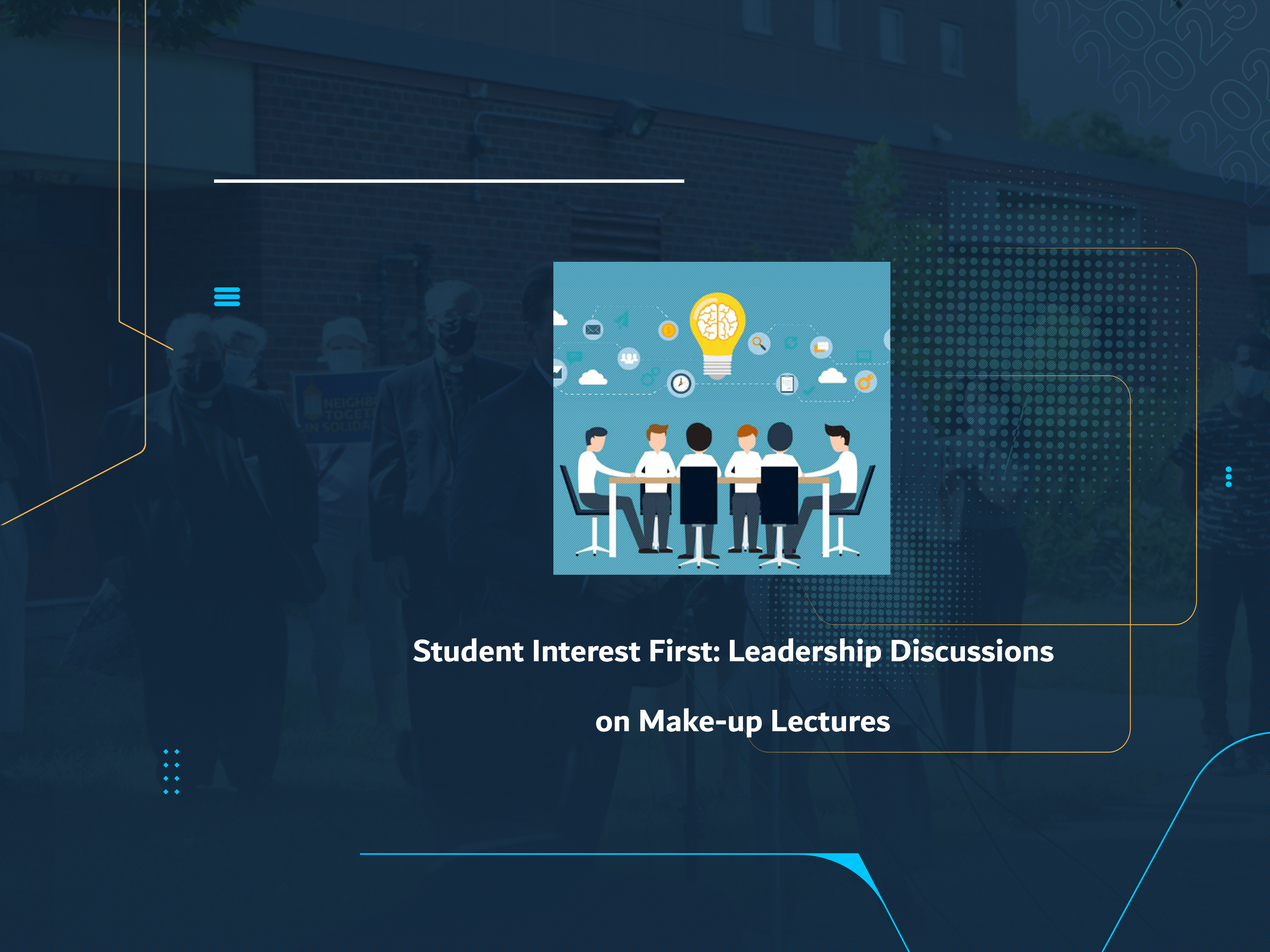Student Interest First: Leadership Discussions on Make-up Lectures

Minnesota – Report by: Sab’ Al-Layl Al-Marakeshi
In its commitment to prioritizing student interests and ensuring their educational rights, the leadership groups at the Islamic University of Minnesota have been engaging in intensive discussions on the issue of make-up lectures. These discussions, held on WhatsApp, involve senior academic and administrative officials, and are part of the university’s ongoing efforts, led by the Vice President, Dr. Omar Al-Maqrami, to find solutions that ensure a smooth educational process without disruptions.
Make-up Lectures: Challenges and Solutions
Make-up lectures—lectures given as a substitute for those that were not conducted as per the scheduled time—are a recurring challenge in the university’s timetable, especially with the increasing number of departments. In this context, Dr. Omar Al-Maqrami emphasized the need to find solutions to reduce the number of make-up lectures, noting that completely avoiding them may be difficult, but he expressed confidence that the ongoing discussions would lead to effective solutions.
Innovative Solutions from the Colleges
Some colleges have introduced innovative solutions to this issue, such as the "substitute professor" strategy successfully implemented by the College of Media. In this strategy, an assistant professor is assigned as a backup in case the main professor is unavailable. Professor Hanan Ubaid, Head of the Graduate Studies Department at the College of Media, stated that this strategy has significantly reduced the number of make-up lectures.
Dr. Ismail Hamed, Dean of the College of Arts and Humanities, also pointed out that there is a mechanism in place within the college to ensure effective coordination between professors and department heads, ensuring that make-up lectures are delivered as soon as possible with the same content as the original lecture.
Diverse Opinions on Solutions
While the "substitute professor" strategy has been successful in some departments, opinions on its efficacy vary. Dr. Rufaida Qamar Al-Dawla, Head of the Accounting Department, criticized this solution and instead suggested dedicating a "Make-up Week," where make-up lectures are scheduled in advance. She also proposed recording lectures so that students can access them if they miss a session.
Dr. Manal Mustafa, Head of the Islamic Studies Department in English, noted that alternative solutions like the "substitute professor" are not practical in her department due to the nature of the specializations and the language of instruction, pointing out that the department strives to make up missed lectures as soon as possible.
Proposals to Enhance the Educational Process
During the discussions, Dr. Laith Al-Zawahra, Deputy Head of the Family Counseling Department, proposed providing financial incentives to professors as a way to encourage adherence to lecture schedules. Dr. Omar Al-Maqrami supported this suggestion, explaining that the university has already started offering symbolic bonuses in some colleges.
In another context, Dr. Mohammed Tawfiq, Vice Dean of the College of Arts, called for comprehensive solutions at the university level and suggested assigning specialists to develop a scientific strategy to address the issue of make-up lectures.
Concluding Discussions: Toward Comprehensive Solutions
The discussions concluded with several proposals from various faculty members. Among them was a suggestion by Dr. Badi’a Abdulqader from the College of Media, who proposed that professors record their lectures themselves or briefly cover the missed lecture in the following session, thereby avoiding the need for both make-up lectures and substitute professors.
These discussions are part of the university’s ongoing efforts to improve the educational process and prioritize the student's best interests in the face of the challenges posed by distance learning systems.


